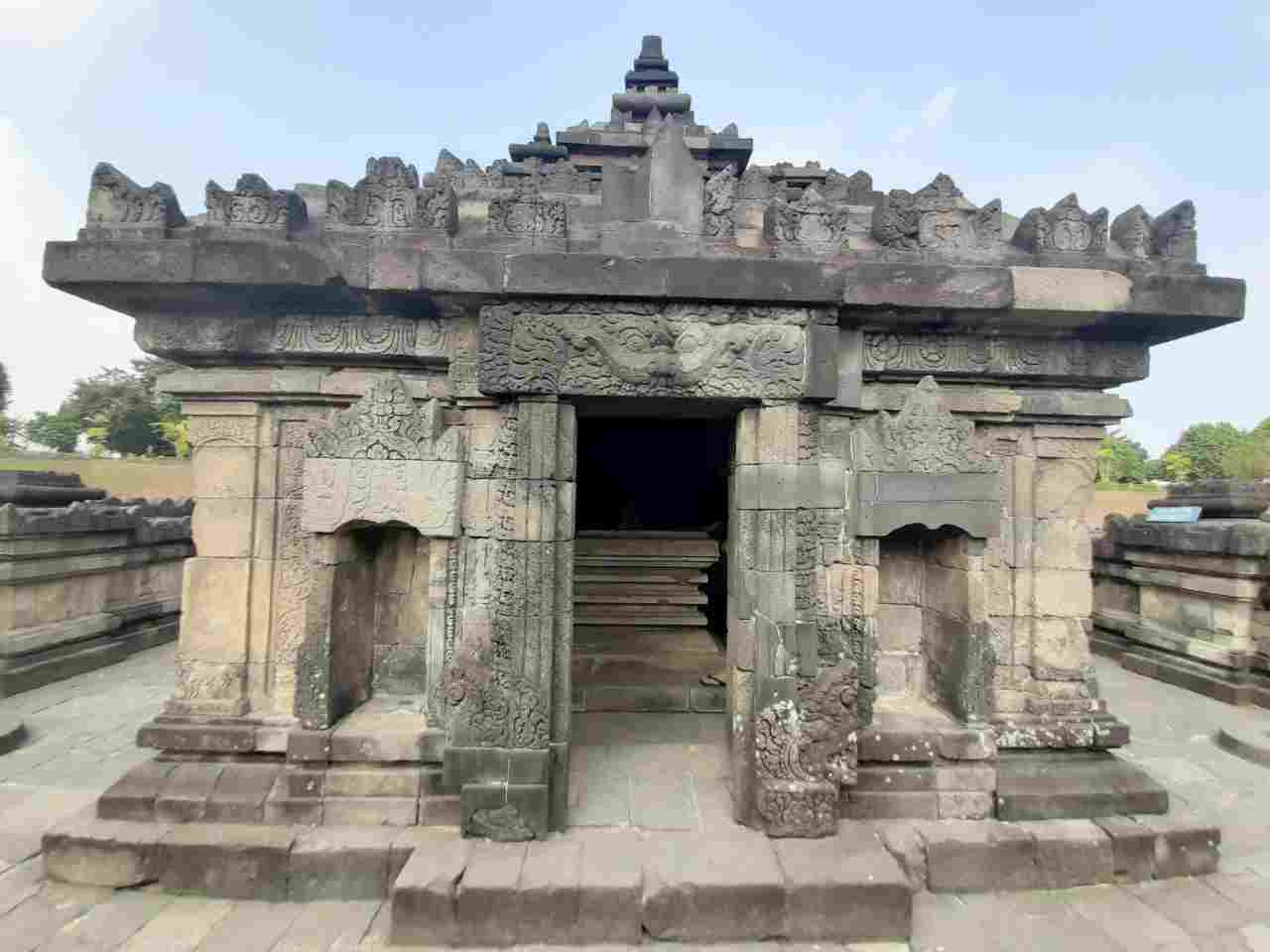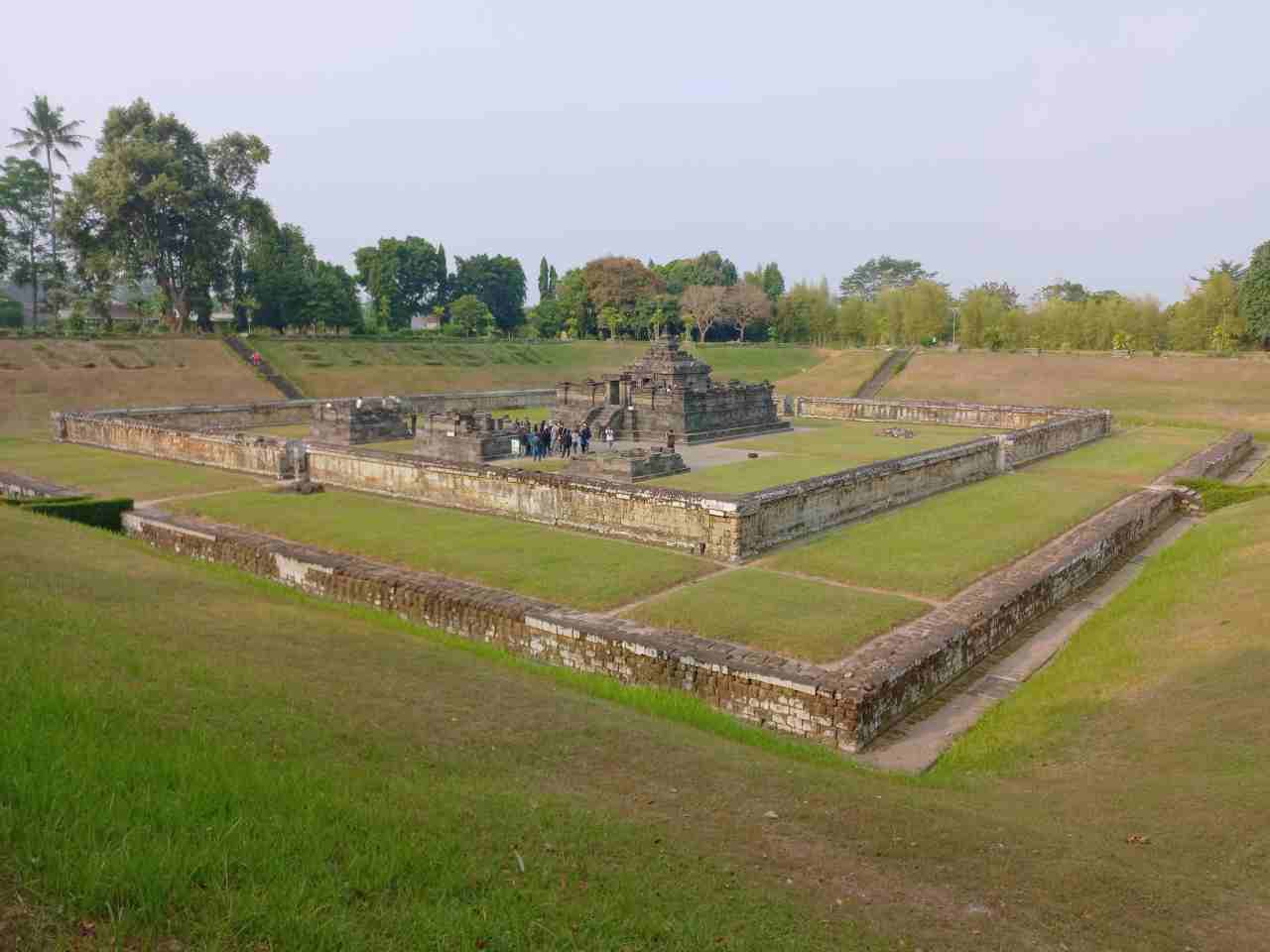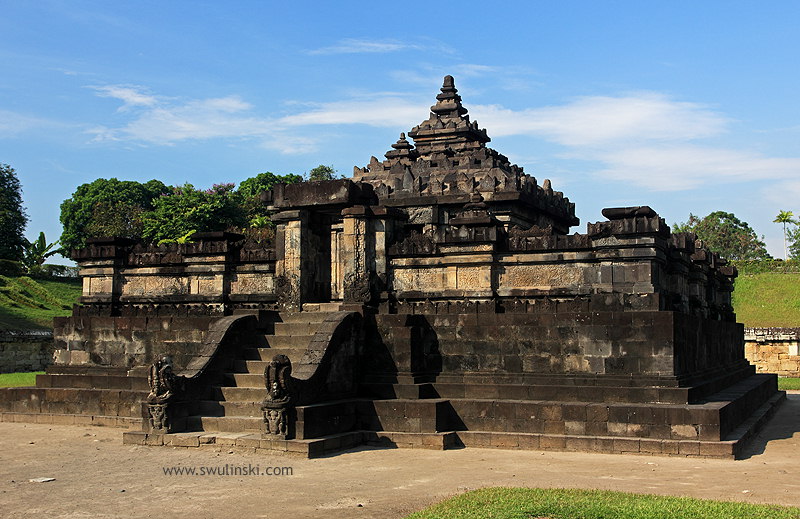Sambisari Temple in Yogyakarta description, opening hours, entrance

Sambisari Temple is a Hindu Temple Located in Sleman, Yogyakarta
central shrine of a Siva temple is always a Lingga"(D.N. Sukla,1958:2). Based on all of the conjectures, Sambisari Temple is a Hindu monu-ment for the Lingga cult. In other words, the Sambisari temple is dedi-cated to Siwa Moreover, it supports the attributes of sculptures belonging to the Siwa family. The sculpture of Durga Mahis-

Sambisari Temple in Yogyakarta Expedia.co.id
Located 15 km from downtown Yogyakarta, Sambisari Temple is another site you'd want to visit. The story behind the discovery of this 9th-century Hindu temple is interesting as it shows how unexpected things tend to lead to archeological findings. After the eruption of Mount Merapi in 1906, Sambisari Temple was buried in volcanic ash until a.

Sambisari Temple, Guide To Explore IdeTrips
Sambisari Temple, which is a Shiva Hindu temple, is estimated to have been built in the early 9th century by Rakai Garung, a Hindu Mataram king from the Syailendra dynasty. The temple complex consists of 1 main temple and 3 supporting temples. There are also 8 phallus stakes which are scattered according to the direction of the wind.

Sambisari Temple
Sambisari (Javanese: ꦱꦩ꧀ꦧꦶꦱꦫꦶ) is a 9th-century Hindu temple located at Sambisari hamlet, Purwomartani, Kalasan, Sleman Regency, Special Region of Yogyakarta, Indonesia.The temple was buried about five metres underground. Parts of the original temple have been excavated. The temple is located about 8 kilometres (5.0 mi) east of Yogyakarta near Adisucipto International Airport.

Sambisari Temple Is A Hindu Temple Located In Purwomartani Kalasan
Sambisari is a 9th-century Shiva temple located at Sambisari hamlet, Purwomartani, Kalasan, Sleman Regency , and Special Region of Yogyakarta , Indonesia. The temple was buried about five meters underground. Parts of the original temple have been excavated. The temple is located about 8 kilometers (5.0 mi) east of Yogyakarta near Adisucipto.

Sambisari Temple Yogyakarta Editorial Stock Photo Image of building
Sambisari Temple is one of the immovable cultural heritages Indonesia possesses. The temple is a historical relic of King Rakai Garung that ruled the ancient.

Sambisari Temple in Yogyakarta Indonesia. 2014 Stock Photo Image of
Sambisari is a 9th-century Hindu temple located at Sambisari hamlet, Purwomartani village, Kalasan, Sleman regency, Yogyakarta, Indonesia. The temple was buried about five metres underground. Parts of the original temple have been excavated. The temple is located about 8 km east of Yogyakarta near Adisucipto International Airport.

Sambisari temple stock image. Image of asia, temple, hinduism 47597923
The Sambisari Temple is estimated to be built in the early 9th century, similar to the construction of Prambanan Temple, Plaosan Temple, and Sojiwan Temple. The Sambisari Temple complex consists of one main temple and three supporting temples. The temple is built in a man-made basin so that if you want to reach it, you have to climb down the.

The Underground Temple, Sambisari Temple Trip Planner Indonesia
Sambisari temple is a 9th-century Hindu temple located at Sambisari hamlet, Purwomartani village, Kalasan, Sleman regency, Yogyakarta, Indonesia. The temple was buried about five metres underground. Parts of the original temple have been excavated. The temple is located about 8 km east of Yogyakarta near Adisucipto International Airport.. Sambisari temple Discovery

Hindu temple Sambisari stock image. Image of hinduistic 135310919
This Shiva temple, probably the newest temple in Prambanan erected by the Mataram dynasty, was discovered by a farmer in 1966. Excavated from beneath a layer of ancient protective volcanic ash and dust, the temple lies almost 6m below the surface of the surrounding land and fields. remarkable for its perfectly preserved condition.

Sambisari Temple stock image. Image of sambisari, temple 262772077
Kedulan temple (Indonesian: Candi Kedulan; Javanese: ꦕꦤ꧀ꦝꦶꦏꦺꦣꦸꦭꦤ꧀, romanized: Candhi Kédhulan) is the ruin of a 9th-century Hindu candi located not far from Sambisari temple. The temple is located in Tirtomartani village, Kalasan subdistrict, Sleman Regency, Yogyakarta, Indonesia.The style and architecture bear striking similarities to the nearby Sambisari temple.

The Sambisari Temple in Yogyakarta Attraction in Yogyakarta
Sambisari is a 9th-century Hindu temple located at Sambisari hamlet, Purwomartani, Kalasan, Sleman Regency, Special Region of Yogyakarta, Indonesia. The temple was buried about five metres underground. Parts of the original temple have been excavated. The temple is located about 8 kilometres (5.0 mi) east of Yogyakarta near Adisucipto.

Sambisari Temple, Guide To Explore IdeTrips
Beto Guesthouse is located at Jl. Solo Km. 10.5, 5.3 miles from the center of Yogyakarta. Sambisari Temple is the closest landmark to Beto Guesthouse. When is check-in time and check-out time at Beto Guesthouse? Check-in time is 1:00 PM and check-out time is 11:30 AM at Beto Guesthouse. Does Beto Guesthouse offer free Wi-Fi?

Sambisari Maciej Swulinski
Sambisari temple is located in Sambisari, Purwomartani, Kalasan, Sleman, Special Region of Yogyakarta. From the city center of Yogyakarta, you will take about 15 kilometers to the north east side. This Shiva Hindu's temple, Sambisari temple was supposedly built in the beginning of the 9th century on Rakai Garung era, the King of Hindu's.

Sambisari Temple in Yogyakarta description, opening hours, entrance
Candi Sambisari, a 9th-century Hindu temple, is located in the village of Purwomartani near the Adisucipto International Airport about 9 km east of downtown Yogyakarta. Sambisari was accidentally unearthed by a farmer in 1966. While working on the land, his hoe hit a carved stone that was part of the buried temple. The temple was buried deep in.

Sambisari Temple Tourism Boutique Tourism
This Sambisari temple is Adisucipto airport so it became my first place to visit after landed at Yogyakarta. Although this temple is not as popular as other big temple in Central Java/Yogyakarta, it was unique. It was an underground temple. It was buried underground until emerged by local farmer in 1966. It was small one but well maintained and.